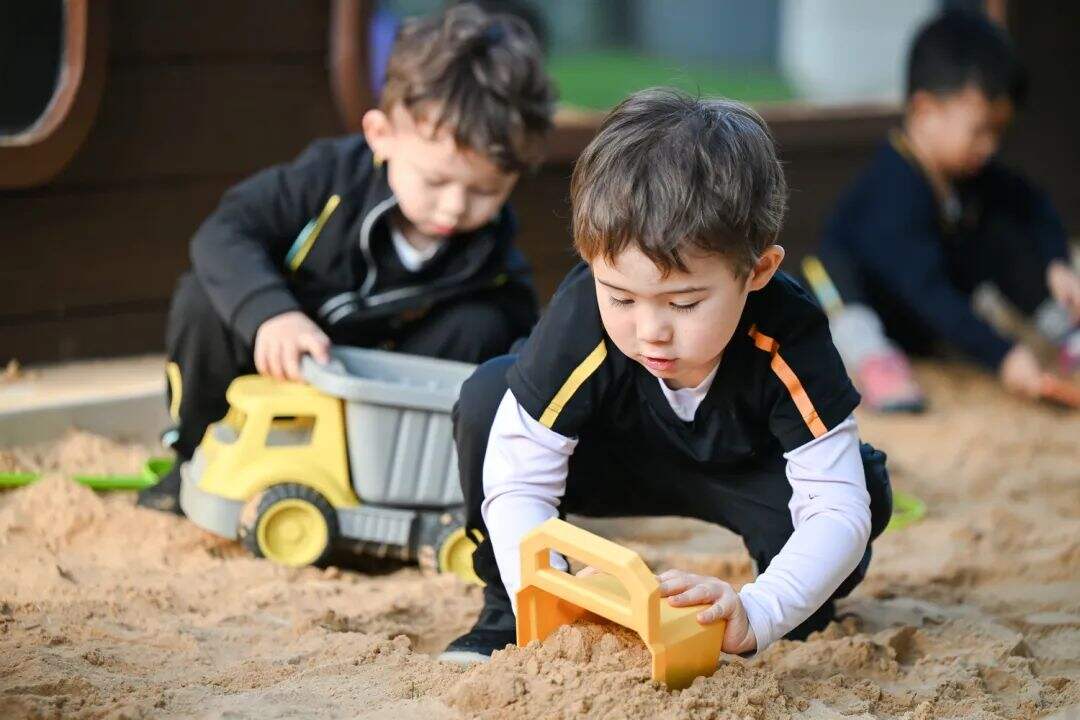Why our youngest learners need boundaries and routines
As a parent, you are your child’s first teacher. One of the most effective ways you can set your child up for long-term success is by establishing clear boundaries and creating consistent routines. Sometimes as parents we struggle to set boundaries and to deal with consequences because we do not want to seem overly harsh or unkind. However, by setting boundaries and reinforcing them as parents we do quite the opposite; boundaries provide a sense of security and help your child to understand what is expected of them. This helps to foster greater self-discipline, emotional regulation and respect for others.
Boundaries are not rules
Creating boundaries does not mean being strict. Rather, it is a way of teaching your child social norms and safe behaviour. Through boundaries, you teach your child personal responsibility and that their actions have consequences. Boundaries such as “We do not take toys from others” or “We do not call other people names” teach empathy, sharing and patience.

Telling your child “We do not run out into on the street” or “We do not climb on furniture” establishes clear guideline.s for safety in the home. By saying “We do not bring our electronic devices to the dinner table” we teach manners and the importance of being fully present in the moment. What boundaries you set, depend largely on your family’s values.
Setting routines and positive habits
Setting routines is equally important. They create predictability and consistency for your child, and this leads to accountability. By setting daily patterns, your child learns what to expect. This reduces the likelihood of anxiety and tantrums. It also teaches essential skills like time management and self-care.

The day is full of opportunities to set routines. Healthy habits, like brushing their teeth, washing their face and taking a bath are great places to start. Eating is a default routine. By setting regular mealtimes, your child will have a powerful anchor upon which to build other routines.
The same goes for establishing a fixed time at which your child should be dressed and ready for the day. Even playtime can be a way to create a routine. You can start by designating a specific play area, limiting screen time or encouraging imaginative play. Bookending each day with a regular sleep schedule is important too.
Positive downstream benefits
But boundaries and routines will benefit your child far beyond their life at home. They bring with them a host of positive downstream effects on your child’s learning outcomes. A child who understands the importance of respecting personal space, listening to others, taking turns, sharing and resolving conflicts constructively is already prepared for formal schooling.

They will already know how to navigate relationships with their peers. Likewise, they gain a sense of belonging. This builds self-esteem and leads to greater happiness. And by extension, a happy pupil is more likely to be a successful pupil.
A child who is accustomed to consistent routines in the home will more easily adjust to the structure of a school day. This will help to foster the kind of self-discipline it takes to prioritise responsibilities and resist distractions. And with each successful outcome, your child gains the confidence to pursue bigger challenges, which, in turn, lead to bigger successes. It’s a positive feedback loop.
Patience, persistence, leading by example
If all of this seems daunting, well, that’s because it is. Young children often resist rules and structure. Rather than creating a rigid, constricting environment, the goal is to build a supportive framework that empowers your child to explore, learn and grow.

It's crucial to maintain a high degree of consistency, minimising compromises along the way. Children learn as much from our actions as our words, so leading by example is paramount. This may even present an opportunity for you to strengthen your own positive habits and routines.
Ultimately, with some patience, persistence, love and a touch of firm guidance, you can lay a solid foundation for your child's academic success and personal development.
Related Articles















